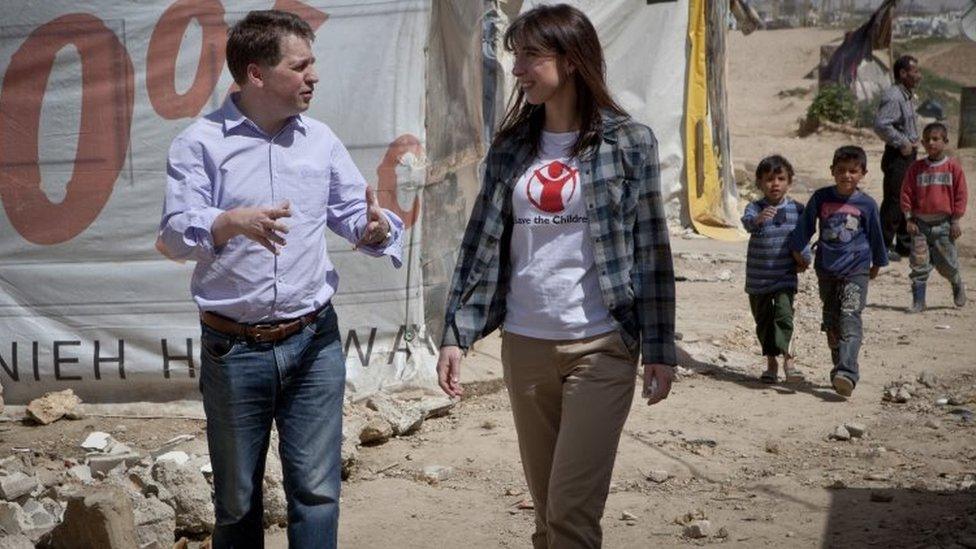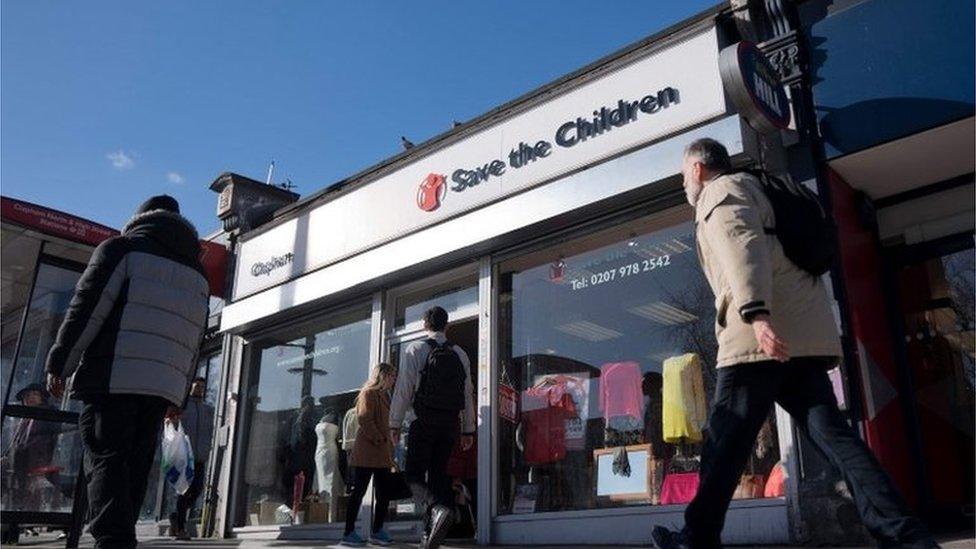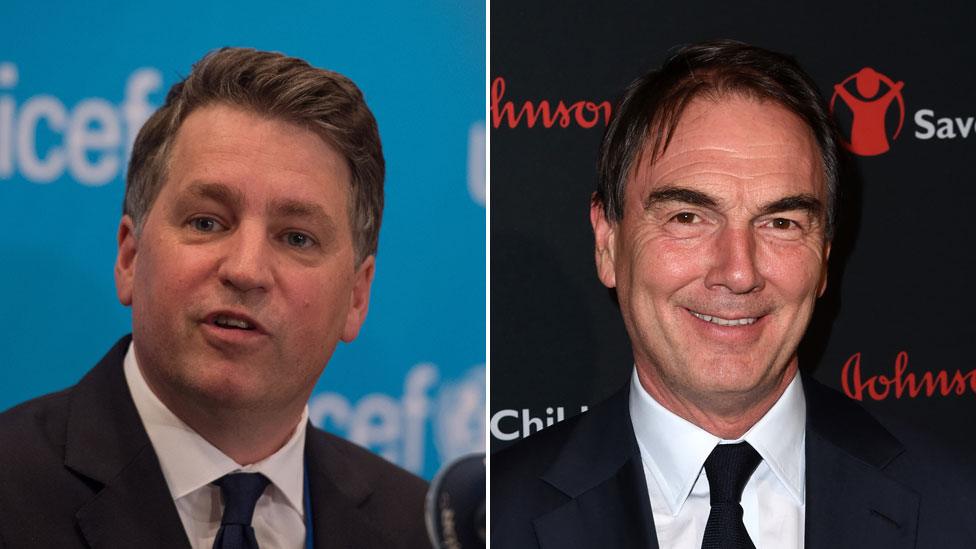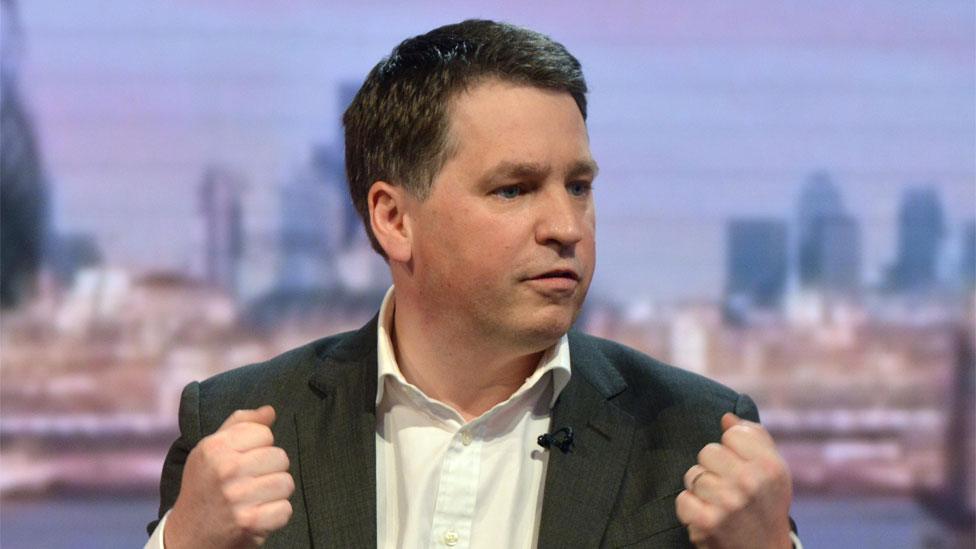Save the Children 'let down' staff and public over harassment claims
- Published
Save the Children CEO: "I apologise deeply to the women affected"
Save the Children UK "let down" complainants, employees and the public over its handling of harassment claims against senior staff, according to a report by the Charity Commission.
The watchdog found "serious failures" in how the charity dealt with claims.
An investigation was launched following allegations of inappropriate behaviour between 2012 and 2015, including by the charity's former chief executive.
Save the Children UK has apologised "unreservedly" to the women affected.
The charity said it had "accepted in full" the report's findings, external.
Its former chief executive, Justin Forsyth, faced three complaints of inappropriate behaviour towards female members of staff, which came to public attention in 2018.
He said he "apologised unreservedly" to the three employees in 2015 and quit his role as deputy chief executive director of Unicef when the allegations resurfaced in 2018.
The charity's former chief strategist, Brendan Cox - the husband of the murdered Labour MP Jo Cox - was at the centre of sexual harassment complaints in 2015.
He admitted he made "mistakes" and behaved in a way that caused some women "hurt and offence" while working for Save the Children UK.
Mr Cox resigned from the charity in September 2015 amid the allegations but at the time denied that was the reason he quit.
The report said there were 13 complaints of general bullying and five complaints categorised as sexual harassment in the charity between 2016 and June 2018.

Save the Children's former chief executive, Justin Forsyth, with Samantha Cameron in Lebanon in 2013
The report found "serious weaknesses" in the charity's workplace culture.
Among the wide range of failings included the charity not identifying its chief executive as the subject of complaints when it made a serious incident report to the regulator in 2015.
Trustees were also not made aware of allegations against Mr Forsyth until 2015, the report found.
The commission said this amounted to the omission of "material facts" and to "mismanagement in the administration of the charity".
It also said one of the charity's public statements in February 2018 was "not wholly accurate", and described its overall approach to reports in the media as "unduly defensive".
The charity's actions created the impression it was seeking to "downplay the seriousness of the allegations", the commission added.
These allegations, and the way in which the charity responded, had a "corrosive impact on its internal culture", the report said.
Since October 2018, the charity has "made significant progress in implementing changes", the commission added.
The watchdog said the charity recognised the seriousness of the complaints and it had found no evidence of deliberate attempts to brush these under the carpet.
The charity instigated two reviews into culture and morale, and has since taken steps to respond to the external reviews' findings.
Ex-Save the Children worker: 'A really toxic culture grew'
Helen Stephenson, chief executive of the Charity Commission, said charities should have "a workplace culture that is healthy, supportive and safe".
"This responsibility is especially pronounced in large, household name charities: their leaders are powerful, and highly respected," she said.
"The impact of failures in leadership in such charities can also have implications for public trust and confidence beyond the charity itself."
CEO's position 'untenable'
Alexia Pepper de Caires, who left Save the Children in 2015, said she raised concerns about harassment at the charity.
The former employee said the trustees "must be held accountable" and the position of current CEO, Kevin Watkins, who was a trustee when the allegations were made, was "untenable".
"We cannot expect people who were part of the problem to reform an organisation," she told BBC Radio 4's Today programme.
In response, Mr Watkins, who became CEO of the charity in 2016, said it was "unfair" to say he failed to discharge his responsibilities as a trustee and that he endorsed and acted on an independent review into workplace culture at the time.
He apologised "unreservedly" to the women affected by the behaviour of the two senior executives.
"The harm they suffered was compounded by a failure to respond appropriately to complaints and then by our defensive handling of media inquiries about the cases," he said.
He added that he was determined to work with staff to "build an organisational culture that reflects our values".
- Published11 April 2018

- Published8 March 2018

- Published7 March 2018

- Published22 February 2018
